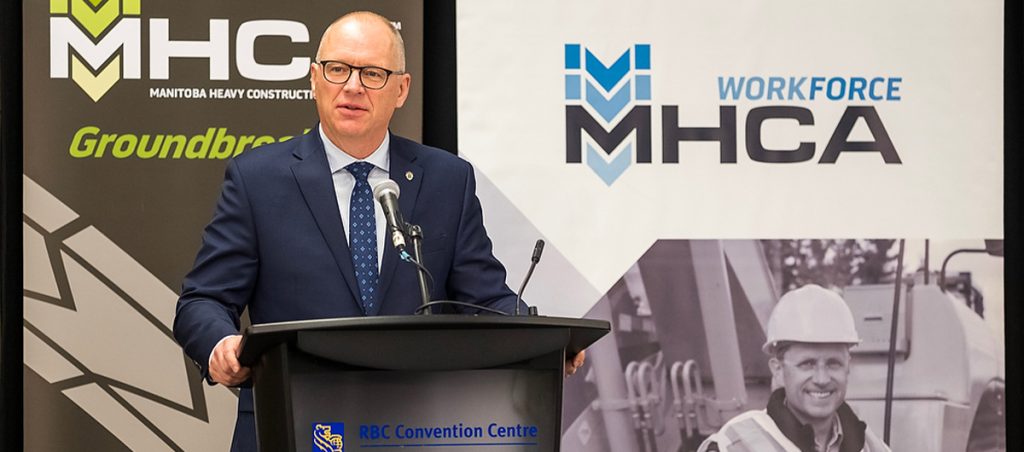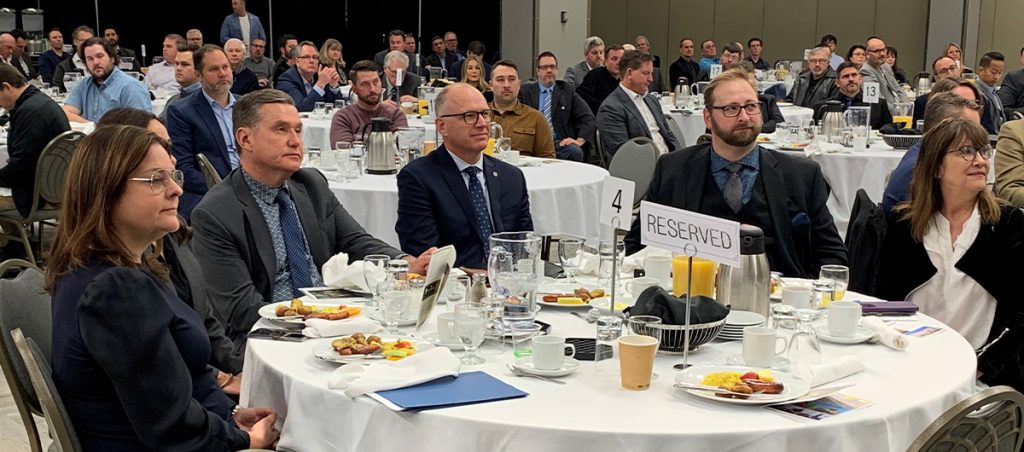Municipal Infrastructure Funding – Political Leadership Required
Municipal Infrastructure Funding – Political Leadership Required
‘Trust the public with a referendum’
The Infrastructure Funding Council’s (IFC) report entitled ‘A New Balance, A New Order, A balanced role in funding Manitoba’s Municipal Infrastructure’ (download full report at www.winnipeg.ca or on our website ) was released on May 18, 2011. This was a full year after it was appointed to offer comprehensive strategies and approaches to begin addressing the burgeoning municipal infrastructure deficit faced not just by Manitoba, but all municipalities across Canada.
The IFC recognizes that the infrastructure deficit took decades of policy and funding neglect to create. It will also take decades of discipline, courage, new and dedicated, accountable, transparent revenue streams as well as political leadership at all levels to address a necessarily surmountable challenge.
The challenge is real. At current funding levels the total Manitoba municipal infrastructure deficit is projected to reach $13.4 billion within the next 10 years.
Quite apart from determining the real numbers which will be influenced by assessing the need, the approach offered by the IFC to begin addressing the deficit is quite simple.
The report suggests, as was offered in the Strategic Infrastructure Reinvestment Reports (SIRP) of 1998 and 2000, that disciplined municipal policy and dedicated revenue streams are required by municipalities.
As much as municipalities can legitimately complain that they raise only 8 cents of every tax dollar collected, yet host 80 per cent of the population and the bulk of Canada’s infrastructure, only asking for more money and not changing the manner in which infrastructure as an asset is treated, maintained, rehabilitated and built for future needs, is an incomplete and inadequate approach.
Simple things like asset management systems, regional infrastructure service delivery, intergenerational debt financing, real adherence to sustainable development principles, focusing on public transit as a solution to mass public movement needs, focusing on existing asset renewal, and life cycle and cost benefit analyzing, are but a few accountable expectations.
These decisions do not require intergovernmental collaboration. What they do require is political will and leadership at the municipal level. Were that to happen, municipal leaders would come to the table with greater moral leadership credibility and authority.
But intergovernmental change is also required. The current approaches and tri-level government fiscal relationships are clearly deficient and in serious need of adjustment.
Provincial and federal governments have seized and jealously guarded unto themselves almost exclusive access to growth taxes – corporate, income and consumption taxes – which grow as the economy grows. They leave to the municipalities as the poor cousin in government hierarchy, to the ‘avails’ of largely regressive realty taxes as the principle source of municipal revenue.
A comparison of these revenue trends is illustrative of the problem.
While federal ‘growth taxes’ increased from $117 billion to $180 billion per year (1998-2008) and Manitoba’s from $2.4 to $4.3 billion, the combined realty taxes for all of Manitoba’s municipalities increased by only $136 million per year. Divide that by Manitoba’s 198 municipalities to appreciate how little that is.
So while provincial and federal coffers dramatically increased thanks to economic growth enabling tax rate reductions, populations and the hosting of infrastructure which platforms our economy and quality of life exploded at the municipal level without a corresponding revenue growth to handle the additional responsibilities.
Essentially – with very few exceptions – municipalities were starved of access to growth taxes. Provinces and the federal government essentially kept them all, and our infrastructure has crumbled in the process.
And “crumbled” is an understatement. The Federation of Canadian Municipalities (FCM) estimated this “crumbling’” will cost Canadians $243 billion at the current rate of decline with the current funding allocated to Canada’s municipal infrastructure.
The IFC recognized the above and suggested a three year transition into a new sharing reality, tied to economic growth, public education and referendum.
Municipalities should do without waiting on senior levels of government, that which exists within their authority. The province should, as it has already committed, gradually stop taxing property as the source to fund education. The latter is a provincial responsibility, and the province should, as the government levying this tax, use its own sources and not disable municipal access to revenues. It should also allocate an additional penny of PST to municipalities for infrastructure. Each of these revenues streams should be dedicated to infrastructure by legislation so there is no question of transparency or accountability or purpose.
But more is required. Municipalities and the province should – as the report suggests – strike an implementation committee to review the elements of a municipal infrastructure funding strategy, agree on its elements, and offer it as a package in a provincial referendum for the public to decide.
Collaboratively, municipalities and provincial governments should press Ottawa to make permanent the full transfer of federal fuel taxes to municipal infrastructure and not just its portion. As the largest beneficiary of economic growth the federal government not only has an interest but a funding responsibility.
Finally, all levels of government need primarily to focus on growing the economy, without which, discussions around revenue sharing and allocation are moot.
The public is owed an explanation of the problem. It needs a transitioned long term, transparent and accountable plan and the right through a province – wide referendum to decide how it wishes to address the challenge.
The current practices must stop. The public must be taken into the elected branch confidence; the elected leaders must trust that the public can and will make informed decisions in the context of a referendum.
The facts are there for anyone to see. The need for attention is available to witness on virtually every street in any municipality.
Leadership. We need it, we want it, we are entitled to expect it from those who have offered and been entrusted by the public to lead public policy governance.
There will be an opportunity this fall to put these questions to those aspiring to the office of premier.
Mssrs Selinger, McFadyen and Gerrard — what say you?
Manitobans are waiting; they will be watching; they will be listening; and they will be voting.
Chris Lorenc, B.A., LL.B.,
Chair, Infrastructure Funding Council (IFC)
President MHCA








